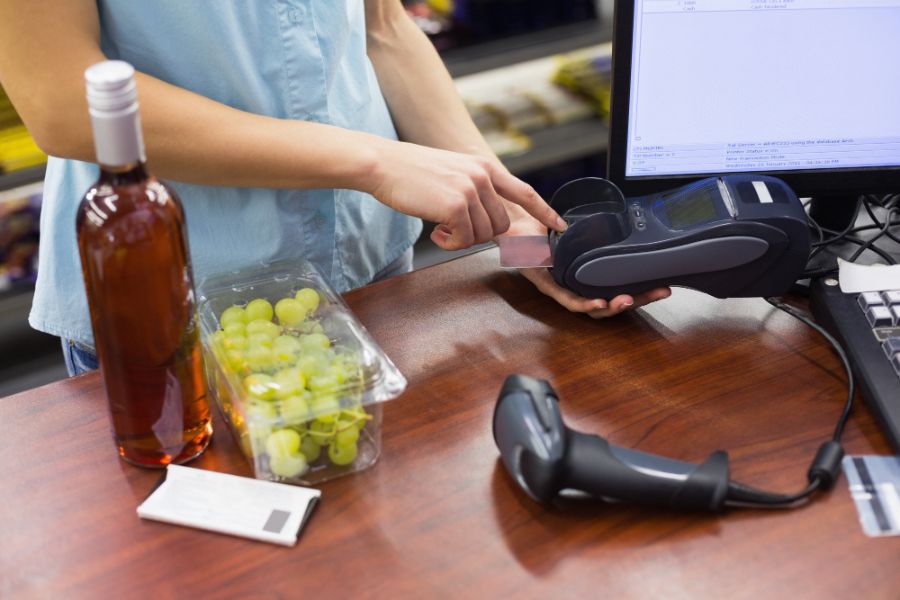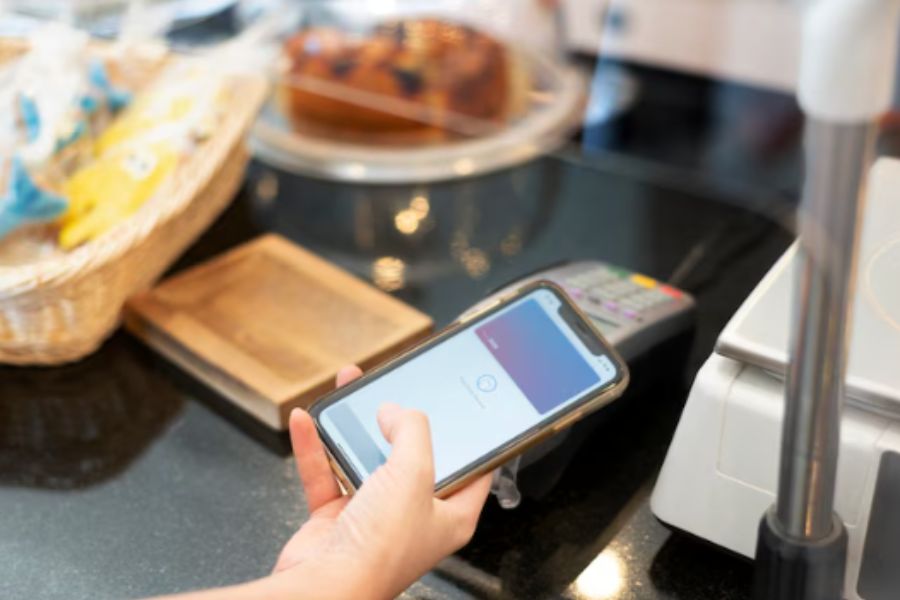In an era where technology is evolving faster than you can blink, the point of sale (POS) system is becoming the backbone of any business. Choosing the right POS system can elevate your service quality, boost sales, and cultivate customer loyalty. Still hesitating? This article may convince you with six point of sale examples that prove just how crucial this can be.
Highlights
- POS systems streamline operations, increase efficiency, and enhance the customer experience through features like faster checkouts, integrated payments, and data-driven personalization.
- Retail, hospitality, healthcare, and service-based businesses gain significant advantages from POS solutions.
What is POS?
The POS (Point of Sale) industry involves the design, development, and deployment of systems used to process customer payments, manage inventory, and streamline business operations at the point where transactions occur. It’s a multifaceted field encompassing hardware, software, and services that facilitate both in-store and online sales.
Here are some key functions of POS software:
- The primary function of POS software is to facilitate transactions. ConnectPOS, for example, allows businesses to handle different payment methods, including credit cards, debit cards, mobile payments, and cash.
- POS software can track inventory levels in real-time and automatically update stock counts with every sale or return. This feature helps prevent stockouts and overstocking.
- Many POS systems include tools for managing employees, such as clock-in/clock-out features, sales tracking per employee, and performance reporting.
- POS software often includes customer relationship management (POS CRM) features, which help businesses track customer purchase history, preferences, and contact information. This data can be used for targeted marketing and improving customer service.
- Another significant advantage of POS software is its ability to generate real-time reports and analytics. These insights allow businesses to monitor sales trends, identify top-selling products, and make data-driven decisions.
- POS software can automate various manual tasks, such as generating sales reports, updating inventory, and even sending invoices or receipts via email. This automation saves time and reduces the potential for human error.
How Can POS Help in Real Life?
POS is an indispensable tool for modern businesses and offers a wide array of benefits that cater to various industries.
These benefits are:
Higher Accuracy
A POS system streamlines the checkout process by automating price calculations and inventory updates. This automation significantly reduces the chances of human error, ensuring that transactions are accurate and consistent. Real-time inventory management also further enhances accuracy by keeping stock levels up-to-date with each sale.
Time-Saving
POS systems are designed to expedite the transaction process, automatically calculating totals, taxes, and discounts. This quick processing reduces customer wait times and improves work efficiency, allowing employees to serve more customers in less time. Faster transactions can also contribute to higher sales volumes and a better customer experience.
Improved Company Image
Implementing a modern POS system can leave a lasting impression on customers. The use of advanced technology reflects a company’s commitment to efficiency and professionalism, enhancing its reputation. What’s more, a positive customer experience with a smooth checkout process can lead to increased customer loyalty and positive word-of-mouth.
Heighten Security
POS systems often come with robust security features, such as double user authentication, to protect sensitive business data. This reduces the risk of unauthorized access and potential breaches, keeping customer information and business data secure. Enhanced security measures help build trust with customers, who are increasingly concerned about data privacy.
Comprehensive Sales Reports
One of the most valuable aspects of a POS system is its ability to generate detailed sales reports. These reports provide business owners with a clear overview of their cash flow, sales trends, and inventory levels. Access to real-time data allows for informed decision-making, helping businesses optimize their product offerings, pricing strategies, and inventory management.
ConnectPOS takes these real-life benefits of a POS system to the next level with its tailored solutions for retailers. Offering real-time data updates and support for multi-store operations, ConnectPOS ensures accuracy and efficiency in every transaction. Its user-friendly interface and advanced features make the checkout process seamless, enhancing the overall customer experience. Moreover, ConnectPOS prioritizes security with robust measures, giving both businesses and their customers peace of mind.
6 Point of Sale Examples from Industries that Prove Its Importance
Hospitality
In the hospitality industry, particularly in restaurants, hotels, and cafes, POS systems are indispensable tools for enhancing the customer experience and streamlining operations. Here are some point of sale examples:
- Order management: POS allows waitstaff to take orders directly on a handheld device or a terminal. These orders are instantly transmitted to the kitchen or bar, minimizing the risk of errors and speeding up service. This is particularly important during peak hours when quick and accurate order processing is crucial.
- Table management: Advanced POS systems help manage table reservations, track occupancy, and monitor dining time. This information allows hosts to optimize seating arrangements, reduce wait times, and improve overall customer flow.
- Billing and payment: POS systems enable split billing, automatic calculation of service charges or tips, and the application of discounts or promotions. These features ensure that the billing process is quick and error-free.
- Inventory management: For restaurants, POS systems track the usage of ingredients, alerting management when stock levels are low. This helps in maintaining optimal inventory levels, reducing waste, and ensuring that popular menu items are always available.
Warehouse/Distribution
POS systems also play a crucial role in the efficient management of warehouses and distribution centers, where accuracy and speed are paramount.
- Inventory tracking: POS provides real-time visibility into inventory levels, tracking each item as it moves through the warehouse. This reduces the chances of overstocking or stockouts and ensures that orders are fulfilled promptly.
- Order processing: POS integrates with warehouse management systems (WMS) to streamline order processing. When an order is placed, the POS system checks the inventory, reserves the items, and triggers the picking process to ensure that orders are packed and shipped quickly.
- Logistics coordination: POS systems like ConnectPOS can also be integrated with existing logistics software to optimize delivery routes, track shipments, and manage returns. This integration ensures that products reach customers on time, reducing delivery costs and improving customer satisfaction.
- Workforce management: In large distribution facilities, POS systems assist in managing labor by tracking employee productivity, scheduling shifts, and assigning tasks based on real-time needs.
Manufacturing
In the manufacturing POS sector, POS systems are critical for overseeing production processes, managing inventory, and fulfilling customer orders.
- Production tracking: POS systems provide real-time updates on the production status of goods, allowing managers to identify bottlenecks and adjust schedules accordingly. This helps optimize the production line and meet delivery deadlines.
- Raw material management: These systems keep track of raw material usage, ensuring that stock levels are maintained and automatically reordering supplies when they run low. This prevents production delays due to material shortages.
- Quality assurance: POS systems can integrate with quality control protocols to monitor defects and ensure that only products meeting the required standards are shipped, thus maintaining high product quality and reducing returns.
- Order processing: By coordinating with other systems, POS software ensures that customer orders are processed efficiently, from manufacturing to delivery.
Healthcare
In the healthcare industry, POS systems are indispensable for managing patient billing, inventory, and overall operational efficiency. Below are some point of sale examples in healthcare:
- Accurate patient billing: POS systems automate the billing process by calculating the costs of treatments, services, and medications. This reduces manual errors and ensures patients receive accurate bills, while healthcare providers focus more on delivering quality care.
- Efficient inventory management: These systems monitor the usage of medical supplies, medications, and equipment, ensuring that critical items are always in stock. This is crucial for maintaining the continuous availability of essential resources in a healthcare setting.
- Appointment scheduling: POS often includes scheduling features that help manage patient appointments, reducing wait times and ensuring a smooth flow of patients.
- Security and compliance: Healthcare POS systems are designed to meet strict regulatory standards, such as HIPAA. This ensures patient data is securely stored and accessed only by authorized personnel, which protects patient privacy and data integrity.
Public Transport
As for public transportation, POS systems are vital for managing ticket sales, tracking passenger data, and optimizing service delivery.
- Efficient ticketing: POS systems enable the sale of tickets through multiple channels, such as ticket booths, vending machines, and mobile apps. They support various payment methods, ensuring a smooth transaction process for passengers.
- Passenger data analysis: POS systems track ridership in real-time, providing valuable data that helps transit authorities adjust schedules and routes to better serve passengers.
- Route optimization: By analyzing the data collected through POS systems, transit operators can refine routes and schedules, reducing congestion and enhancing the reliability of public transport services.
- Security measures: These systems also include features that prevent fraud and ensure secure transactions, safeguarding revenue and maintaining the integrity of the public transport system.
Service-based Businesses
Service-based businesses, from hair salons and spas to auto repair shops, rely heavily on efficient operations and exceptional customer service to thrive.
- Efficient Service Delivery: POS systems in service-based businesses enable seamless appointment scheduling, service tracking, and invoicing. This ensures that services are delivered efficiently, minimizing wait times and maximizing customer satisfaction.
- Integrated Payment Processing: Service-based businesses often deal with a variety of payment methods, including cash, cards, and mobile payments. POS systems facilitate secure and convenient payment processing, reducing the risk of errors and fraud while catering to diverse customer preferences.
- Customer Relationship Management: Many modern POS solutions integrate with customer relationship management (CRM) systems, allowing service-based businesses to capture and analyze customer data, preferences, and purchase histories. This valuable information can be leveraged to personalize services, offer targeted promotions, and foster long-term customer loyalty.
- Inventory and Supply Management: Service-based businesses often rely on specialized products and supplies to deliver their services. POS systems can track inventory levels, automate reordering, and optimize supply management, ensuring that essential resources are always available when needed.
- Reporting and Analytics: Comprehensive reporting and analytics capabilities within POS systems provide service-based businesses with valuable insights into sales trends, productivity metrics, and customer behavior. These insights inform data-driven decisions, helping businesses identify areas for improvement and develop effective strategies to enhance profitability.
- Mobile POS Capabilities: Service-based businesses often require mobility, whether it’s providing on-site services or managing multiple locations. Mobile POS solutions enable seamless operations, allowing businesses to process transactions, access customer information, and manage appointments from anywhere, enhancing convenience and flexibility.
FAQs: Point of Sale Examples in Industries
1. What industries typically utilize point-of-sale (POS) systems?
POS systems are commonly used in various industries, including retail, hospitality (restaurants, hotels), healthcare (pharmacies, clinics), and service-based businesses (salons, auto repair shops).
2. How can a POS system improve the customer experience at a multiple-store chain?
A POS system can improve the customer experience at a multiple store chain by enabling centralized menu management, integrated loyalty programs across all locations, streamlined order and payment processing for consistent service, and real-time inventory visibility to ensure product availability. This consistency and efficiency across the chain provide customers with a seamless and satisfying experience, regardless of which location they visit.
3. What are some advanced features found in modern POS solutions?
Modern POS systems have several advanced features, such as real-time inventory management, customer relationship management (CRM) integration, comprehensive reporting and analytics tools, and support for emerging technologies like mobile payments, self-service kiosks, and even artificial intelligence (AI) for personalized recommendations or automated inventory forecasting. These advanced capabilities help businesses streamline operations, gain valuable insights, and deliver exceptional customer experiences.
Conclusion
All in all, the use of a POS terminal can transform the way businesses operate, offering benefits that extend beyond just transaction processing. By improving accuracy, saving time, enhancing company image, ensuring security, and providing valuable data insights, our point of sale examples above show that POS systems are becoming a vital asset in driving business success across various industries.
ConnectPOS is among the leading cloud-based POS solutions, delivering a fantastic customer experience to meet the demands of modern businesses. Contact us now to tell our experts your story and get a demo!



